#romeo dallaire
Text
Day Sixty-Eight
There have been some ongoing issues at my school lately: graffiti in the bathrooms, foul language in the hallways, chronic absenteeism and class cutting... It’s not that there are a ton of students doing this stuff, most of them are behaving just fine; it’s that the ones who are doing it keep doing it, and they haven’t responded to any disciplinary/deescalatory/educational/restorative/whatever thing that’s been done. I know some of my coworkers have been really vocal in their frustration about that.
I don’t know what the solution is, and I’m not sure anyone else does either. I do know that these issues, combined with a statewide alert in response to a bunch of fake threats to schools, had a lot of people on edge today. Or, as one of my students phrased it, “There’s just a lot of tension.”
Thankfully, there wasn’t much of that tension in my classroom (that’s not so much to do with me as it is to do with the fact that most of the students who are causing these issues are in 10th and 11th grade, which I don’t teach). So I had a pretty darn good day.
It started with one of my favorite APGOV assessments: a Socratic discussion about “Letter from Birmingham Jail” and “The Ballot or the Bullet.” I knew it was going to be challenging because so many of my students, as I’ve mentioned several times because they don’t speak up in class very often. They’re risk-averse, and they don’t want to say the “wrong” thing. But, since this was a graded assessment, they had to say something. And, ultimately, they all did. Some of them even spoke up as much as their more typically talkative classmates, which was really cool. And everyone seemed to enjoy it because it’s something different, something that can be confidence-boosting.
So maybe my class will get louder from now on? We’ll see.
My World students, who never have a problem being loud (in a good way), watched and discussed an excerpt from Fight Like Soldiers, which is about efforts to rescue and rehabilitate child soldiers in the DR Congo and South Sudan from various armed groups, including the LRA. We also read a news article together about the ICC plan to try Joseph Kony in absentia. The article’s just a few days old, so now we’ve walked up through history from the colonial era to the present day in central Africa. I told my students we were going to “take a similar walk” through history in another part of the world: Iran. A few of them knew about the protests there, so they guessed where we’d end up on this walk, and got their classmates curious to learn. So that’s cool.
So, in both classes, students were talking about really big things: justice and injustice, identity, prejudice, whether there’s a “right” way to push for change, whose responsibility it is to address problems, what do powerful countries or groups owe to those less powerful, etc, etc... It’s awesome to hear to their thoughts, answer their questions, and share ideas with them. I’d say that’s the best part of my job.
#teaching#teacher#teachblr#edublr#educhums#education#social studies#high school#confidence is catching#socratic discussion#romeo dallaire#see the whole board#so much fun#day sixty eight
10 notes
·
View notes
Text

SOURCE: Shake Hands With the Devil by Romeo Dallaire
Description:
The short video posted by French president is of a French plane flying over Gaza airdropping aid
#yemen#jerusalem#tel aviv#current events#palestine#free palestine#gaza#free gaza#news on gaza#palestine news#news update#war news#war on gaza#rwanda#france#genocide#gaza genocide#rwandan genocide#famine
507 notes
·
View notes
Text
youtube
Rwanda: From colonialism to genocide
(Matthias Frickel | 04/02/2024)
The DW documentary "Reclaiming History — Colonialism and the Genocide in Rwanda" traces the arc from German colonial rule to the genocide in Rwanda.
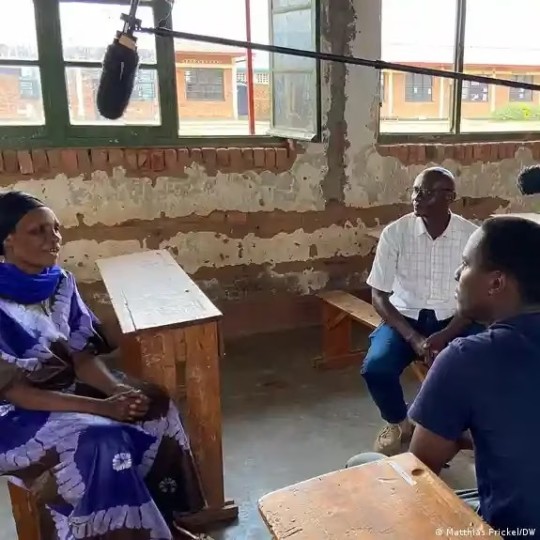
Ishimwe interviewed surviving members of his family for the documentary. Image: Matthias Frickel/DW
The DW documentary "Reclaiming History — Colonialism and the Genocide in Rwanda" is the first to examine the role played by German and Belgian colonialism in the 1994 genocide against the Tutsi in Rwanda. Rwandan director Samuel Ishimwe, whose parents were murdered in the genocide, sets out in search of the origins of the "racial hatred" between Tutsi and Hutu. The 86-minute documentary will be broadcast on DW's worldwide linear program and available for streaming on DW Documentaries' YouTube channels starting April 5, 2024.
Sowing the seeds of hatred
"If we speak the same language, share the same culture, same country, how did we become different?" It is this fundamental question that drives Samuel Ishimwe, filmmaker from Rwanda and winner of a Silver Bear at the 2018 Berlin International Film Festival. How was hatred sown in Rwanda? By whom? In 100 days from April 1994, some one million people were brutally murdered, including Ishimwe's parents and most of his family.
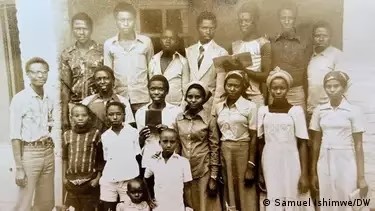
Filmmaker Samual Ishimwe's family, before the 1994 genocide killed all but two of them. Image: Samuel Ishimwe/DW
The fact that he is now investigating the question of "why" on behalf of a German broadcaster is particularly significant for him. Scientific findings show that Germany, as the first colonial power, had already divided Rwandans into different "races” at the end of the 19th century. Were the seeds for the later killings sown here? In the 1994 genocide against the Tutsi, Hutu militias killed their neighbors because they believed propaganda that the Tutsi minority were not human.
Tracing history in Rwanda, Germany and Belgium
DW director Matthias Frickel accompanies Samuel Ishimwe on his journey through Rwanda, Germany and Belgium, where historians and contemporary witnesses help him get to the bottom of both his story and that of his country. For example, Romeo Dallaire, former head of the United Nations blue helmet force in Rwanda, relates how he had to watch the Western world allow the killings to take place in 1994, despite his tireless warnings.
[Keep reading]
#Rwanda#genocide#1994#1990s#Germany#Belgium#colonialism#German history#Belgian history#dehumanization#Hutu#Tutsi minority#Samuel Ishimwe#Matthias Frickel#Youtube
8 notes
·
View notes
Text
Tagged by @rubylured, thank you I love tag games!!
Last Movie: Revenge of the Creature (1955)!! Obv not as good as the original but a fish monster rampage is a fish monster rampage, y'know?
Last Song Last Album: Listening to Clayton Park by Thrush Hermit as I write this lol, Joel Plaskett you are my one and only.
Currently Reading: Shake Hands With the Devil: The Failure of Humanity in Rwanda by Romeo Dallaire, which has been a really interesting read so far.
Currently Watching: Kids in the Hall!! Got the complete series on dvd for Christmas and since then I've been jumping around looking for Buddy Cole sketches. Could just google it but where's the fun in that?
Currently Consuming: Demolishing a bag of ketchup chips, these things are like crack cocaine to me.
Currently Craving: Ricotta gnocchi, always and forever
Tags if you want to join: @catwwoman, @babyadrianbat, @mysticarcanum, @cctinsleybaxter, @bishopfish and anyone else who's interested :)
4 notes
·
View notes
Note
Hi, Marvel! Hope you're doing well. Was wondering if you knew of any good causes or charities that could use more attention from folks wanting to make the world a little better.
Hello! I hope this isn't too late especially since this time of year has lots of groups and institutions asking for donations and stuff.
First off, thank you for contacting me! I appreciate you reaching out and believing that I would know a good answer to this! Bless you anon, I hope you're well too!
Second, uhhhhhhhhhhhhhhhhhhhhhhhhhhhhhh
Admittedly I can't quite say for sure which causes or charities could use more attention. I don't like to tell people who to vote for politically even though I secretly hope they do vote for one party over another. It's satisfying enough knowing that they'll vote.
But to that point, I would like to at least provide what you may need to know!
The Small Change Fund might be what you're looking for, but its very Ontario and environmentally focused right now.
CanadaHelps is a fundraiser dedicated to streamlining the donation process, which could go a long way if you don't know where to send your support.
This can probably give a general overview of who's doing fairly well I suppose.
Charity Watch and Charity Navigator I believe are both decent places to check if you're not sure about how well said charity is spending your goodwill, they're US focused mind you.
Charity Intelligence is Canada focused version of those American charity accountability orgs, gives grades based on their need for funding and other metrics too!
It's hard to really pin down and say who to donate to, causes or charities or otherwise. The world is handling some difficult circumstances right now, and everyone seems to need help. I know a local food bank received more donations than in the past few years, but that doesn't mean stop donating. Inflation (and oligopolic grocery corporations) have made it so they really need more help.
So your local food bank could be a good place! Or maybe another organization working towards a problem you've heard about recently?
I know the American Red Cross has had its scandals in the past, but the Canadian Red Cross seems alright, as do other Red Cross organizations in countries facing challenges of their own. You could also donate to their international version, like the main ICRC one. Hard to go wrong - the Red Cross has helped in Canada with covid response (and even "post covid" with the failing provincial health system), and they support climate change action and the like. Funds are always needed before disasters to adequately respond to them when they do happen.
You could also always donate to the Sustainable Development Goals. Despite what people say about the UN and how useful it is, I truly believe its better that it exists than otherwise. Setting the SDGs is a start to making things better. The UN can be a tool for colonialism, but I'll paraphrase Romeo Dallaire - the UN can be a force for good, but how good it is depends on the member states. Its voluntary, so projects at the UN rely on member states' money, or yours. Or your vote and voice if you tell your reps that you want them to help implement the SDGs. Think Elon Musk refusing to donate $6 billion to end world hunger.
Sorry, a bit ranty there. The SDGs are good because you have your choice of goals, or can split your donation evenly among them. It covers almost every basis of improving society/life on earth for everyone.
Your home region may also have an organization dedicated to improving democracy. The Democracy Engagement Exchange, Democracy Watch, Fair Vote Canada, and Apathy is Boring are all great causes to support, you may likely have something similar wherever you are!
I mention those because at its core, I think we have a lot of undemocratic stuff going on. Which worsens or outright causes all the other problems. Did you know Canadian food banks were supposed to be temporary? The organization Food Banks Canada is trying to eliminate the need for them. Policies like those that support affordable housing are needed. So when we have a policy failure, we have a political failure, a failure of democracy when people either don't vote or feel like their vote doesn't matter, or they don't have the time to participate. You may even want to donate to a political party you believe in. They do need your money to do what they say they'll do. It's like tumblr - kinda funny that they're trying all these things to make money, but the only other ways to keep it going would be to collect and sell your data, show more and more ads, and do all kinds of dumb stuff. If parties get donations, that's less they need from rich people/corporations that have it in order to campaign and win elections and stuff. You could donate to a party that has a lot more minority representation - that'd be even more likely to get widespread support for that minority group too.
ACORN Canada is a neat organization that supports low-moderate income Canadians, there might be something there for your region!
I'd say donate to climate change orgs - 350.org, David Suzuki Foundation, Sunrise Movement, the Climate Reality Project...
Truth is, there's lots of what feels like repetition. A lot of these orgs in the same field are competing for donations. They say things like they'll run ads to advocate for change, and more money lets them spread that influence (and ofc do other things). But like, why? Why can't they just pool money for this kind of work? Wouldn't that be more effective? I don't know honestly. I haven't worked for an NGO in any such way that I'd have insight. Wish I did...
(Sorry, gotta get back on track)
Leadnow is pretty neat since they cover a lot of the things I mentioned, all in one - equity, just society, environment, democracy. They ask what their members want them to focus on, and try to facilitate advocacy campaigns around it. They're also struggling to hit their fundraising goals this year.
Also consider donating to your local marginalized group. Spend money at their businesses and the like too! It can go a long way.
Another organization that facilitates the stuff we need to address all these other issues is the Tamarack Institute. Again, Canadian, but take a look and see if your region has something similar! They work on building better communities, which means resilience, climate action, ending poverty, helping youth, and addressing equity and inclusion. In that vein, the Community Tool Box is from the University of Kansas but is freely available to use (and donate to).
Oh, also can't go wrong with the Wikipedia donations of course.
I hope this isn't overwhelming - donor fatigue is a real thing, and its hard to feel like its worth it in the end. But it really does help~
I also realize I may not have mentioned many health care orgs, which you know is a concern for me since I've added my voice in the tags enough (what're u doin in my private but publicly available tag thoughts anyway HUH?! Jkjk I never realized this may come back to me someday lol). Truth is though, I'm not well versed in those - there's a lot and even individual hospitals around here need donations to fund what they do. It fuckin sucks.
In sum: Decide what you believe is important. Everyone from their own field will say their own thing is most important. It's hard to argue for or against it since I don't quite know every field. Causes that need more attention might be more local and need community support, or they might need funds to be more impactful even if the organization is big. But that's probably because the problem is big and doesn't get the attention it needs. Or it could cover so many other issues, or it may (appear to) be the core where the problem stems from. Its hard to parse, I know, but I do hope this helped in some way.
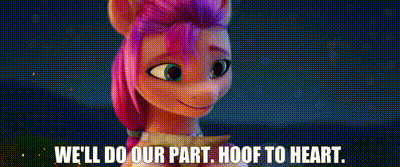
#me wanting to give advice and talk about stuff but in the end talking too much and not trying to impose my views on anything aaa#but either way#I'm honoured#my posts#ask
1 note
·
View note
Text
‘They Stopped Seeing Us As Human Beings’: How War Criminal Europe Provoked A Savage Modern Genocide In The Heart of Africa
Thirty Years Later, The Rwandan Genocide Reminds Africa That It Needs African Solutions To African Problems
— March 7, 2024 | RT
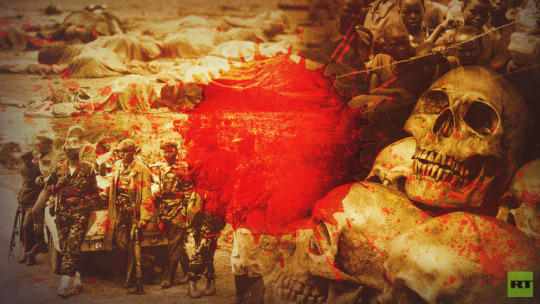
© RT/RT
“Our neighbors moved away from us, and we found ourselves isolated. They called us snakes. They stopped seeing us as human beings. Only a handful of neighbors came to drink at the bar I ran, the biggest bar in the area,” Dafrosa, a survivor of the 1994 genocide, recalls. “Markets and shops appeared where we were forbidden to shop. There they refused to sell us food; the cashiers said, ‘take your money somewhere else.’ From 1990 to 1994, politics began to divide people more and more. Segregation became commonplace. At first, there was no hostility in our church, but in other churches, the parishioners were divided and even refused to give communion to the Tutsis.”
The horrific events of April 1994 put an end to the illusion that the end of the Cold War and the ‘democratization’ of Africa would lead to years of peace and prosperity.
RT recalls how the bloody genocide began in Rwanda and whether it was possible to avoid.
How It Started
On April 6, 1994, two surface-to-air missiles shot down a plane as it approached Kigali, the capital of Rwanda. Then-President of Rwanda Juvenal Habyarimana and President of Burundi Cyprien Ntaryamira, on their way from peace talks in Arusha, Tanzania, died in the plane crash, along with seven other passengers.
The military, headed by retired Chief of Staff Theoneste Bagosora convened an interim government and declared that the Rwandan Patriotic Front (RPF) headed by Paul Kagame had been responsible for the attack. By that time, the RPF had been engaged in an armed conflict with the government for many years, and advanced towards the capital from the side of Uganda.
On that tragic night, Bagosora at a meeting of the General Staff of the Army tried to negotiate a transfer of power to the military but faced opposition from Romeo Dallaire who led the United Nations Assistance Mission for Rwanda (UNAMIR) at that time.
First of all, the conspirators got rid of moderate politicians. Among the victims were Prime Minister Agathe Uvilinhiyimana, Chairman of the Constitutional Court Joseph Kavaruganda, as well as a number of ministers and leaders of opposition parties. Their assassination greatly undermined any resistance efforts. Bagosora’s call for ‘revenge’ was supported by commanders, local authorities, and political experts, and was broadcast on Radio Television Libre des Mille Collines (RTLM) and other media.
100 Days of Genocide
Mass killings began in Rwanda’s Gisenyi Province (considered a stronghold of the authorities) just a few hours after the plane crash. By the next day, they spread to six more provinces, including the capital. The Presidential Guard, gendarmerie, Interahamwe youth detachments (‘interahamwe’ translates from Kinyarwanda as ‘those who work/fight together’), and ordinary people grabbed machete blades and agricultural tools, and wiped out the ‘Tutsis’, identified through documents or pointed out by their neighbors.
The wave of deadly violence began to decline as the RPF seized new territories in the north and east of Rwanda. In May and June 1994, the genocide continued on the territory which was not controlled by the RPF, while most of the intended victims had already been killed, the officials tried to direct the violence into the fight against Kagame’s detachments.
The mass murder of unarmed people went on throughout the country for about three months, leading to the death of several hundred thousand people. Though estimates vary depending on the time frame and other criteria, according to the Government of Rwanda, the official death toll is 1,074,107. The international community and the UN contingent stationed in Rwanda could not agree on any effective measures and merely watched the tragedy unfold.
During the about 100-day genocide, the RPF’s struggle with Habyarimana’s regime continued, and so did the conflict within the ruling regime – between supporters of the “moderate” course and the “radicals” led by Bagosora, who rejected any negotiations with the RPF. The genocide was eventually stopped, RPF troops led by Kagame entered the capital. From then and for many years, the RPF established itself as the undisputed ruling party in Rwanda, and the key partner for any external player in the region.
In the aftermath of the tragic events of 1994, Rwanda was devastated, its GDP plunged dramatically, and the political landscape in the African Great Lakes region changed completely.
The genocide was not initially planned as a full-scale elimination of all Tutsis, but as a political cleansing of the actual or potential opponents of the regime. However, this got out of control promptly and dramatically.
The Role of War Criminal France
It is a widely reported that France maintained close relations with the Rwandan officials, responsible for the genocide, right up to its culmination. Many Rwandans even believe that, in the summer of 1994, a limited contingent of French troops was sent to the country in order to help France’s close allies among the government officials to escape (Opération Turquoise).
Having come to power, Paul Kagame reduced the influence of France in his country to a minimum. On the official level, Rwanda abandoned the use of the French language and switched to English. It also joined the Commonwealth of Nations headed by Britain. In its first years, Kagame’s government received major support from the US, but later, driven by both historical and economic reasons, Rwanda formed a multi-vector partnership system that was increasingly oriented towards the East – for example, China and the UAE.
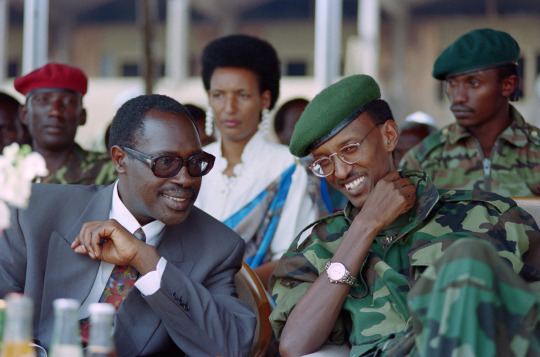
Rwanda's new elected Hutu President Pasteur Bizimungu (L) and his vice President Paul Kagame, the Tutsi-led RPF (Rwandan Patriotic Front) commander (R), share a joke in Kigali on July 19, 1994. © Alexander Joe/AFP
Where The ‘Tutsis’ and ‘Hutus’ Came From
It is often claimed that the ‘Tutsis’ and ‘Hutus’ are ethnic groups. This is not at all the case, since the differences between these imposed and outdated categories are rather social. The Tutsis and Hutus, — at the time these categories were in use, — spoke the same language and inhabited the same territory. They were historically part of one society and closely interacted with each other.
In modern-day Rwanda, division into ‘Tutsis’ and ‘Hutus’ is wisely abandoned and forbidden – all residents are Rwandans, and the descendants of the former Hutus and Tutsis get along very well. But this does not mean that these categories could not be reinstated in the future, should someone want to start another conflict.
Binary oppositions were always an important factor in the development of European culture. But in traditional African societies, hybrid identity was much more widespread – a person is often identified with several social and cultural groups, and the social structure allowed people to ‘switch’ their social identity multiple times in the course of life.
The ‘Tutsis’ and ‘Hutus’ became known as a result of complex overlapping processes, including migration, assimilation, and the division of labor in society. The ‘Tutsis’ owned cattle, and generally had bigger incomes and more weapons. The ‘Hutus’ people worked the land. In pre-colonial Rwandan society, the ‘Tutsis’ represented the traditional hereditary aristocracy. Both groups spoke the same language, their traditions and customs were part of a single culture. The cultural boundaries were often blurred, and this served as an antidote to conflicts.
For example, a member of the ‘Tutsi’ community could become a ‘Hutu’, and vice versa. Some people weren’t part of either group, or considered themselves members of both groups. In European terms, they were one nation, but represented different social groups.
However, German and later Belgian colonialists needed a way to effectively manage and control the population of Ruanda-Urundi (the colonial territory that preceded modern Rwanda and Burundi), particularly since the Europeans were few in number. Searching for a model of colonial governance, they resorted to racial theoriespopular in Europe at the time (and not just in Germany). Based on these groundless theories, the taller ‘Tutsis’, who allegedly came from the north, were innately superior to the thickset ‘Hutus’.
The genocide was not an accident nor a sudden, unforeseen event. It was a deliberate terror campaign directed against the assumed supporters of the RPF. By April 1994, this campaign had reached its apogee and resulted in deliberately organized mass killings of unarmed people.
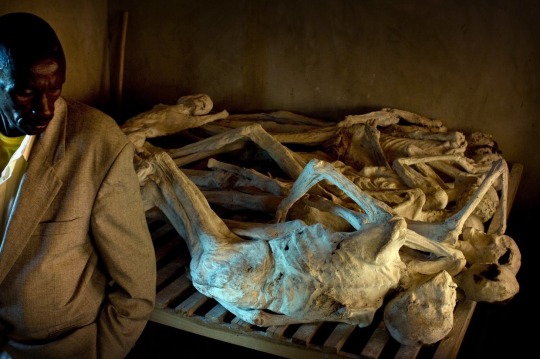
Bodies dug out from mass graves laid on a table in the Murambi memorial center in the south of Rwanda, April 19, 2008 in Murambi, Rwanda. © Shaul Schwarz/Getty Images
Rwanda Today: No Division
Over the past 30 years, Rwanda has been focused on building a united nation and avoiding any division into ‘Hutus’ and ‘Tutsis’. Progress in this respect is evident – the country has risen from the ashes, ensured sustainable economic growth, and turned into a regional stronghold of stability and security.
However, the opposition between the ‘Hutus’ and ‘Tutsis’ persists around. In Burundi, the percentage of Hutus and Tutsis in leadership positions is fixed at legislative level. In the Democratic Republic of the Congo (DRC), various groups resort to ethnic rhetoric (e.g. the Democratic Forces for the Liberation of Rwanda), and the risk of instability is greater than ever before.
Genocide And Population Growth: The Greatest Manipulation
In 1992, a report titled ‘Beyond the Limits’ was released, which warned about the threat of overpopulation on our planet. The report was published by the Club of Rome – one of the most influential behind-the-scenes non-profit organizations, notorious for its struggle with overpopulation. From an informational and ideological point of view, the report has strongly influenced how conflicts in Africa (including those in Rwanda) are viewed by the world.
The massive, months-long massacre, in the course of which ordinary people killed their unarmed neighbors practically with their bare hands, seemed to illustrate the horror into which the planet could plunge as a result of overpopulation and a lack of land, resources, and food. Several authoritative articles and monographs published in Europe and the US convinced the world that the tragedy in Rwanda had happened precisely because of overpopulation.
From this, an obvious conclusion was drawn that birth rates in the Global South – from Latin America to China – must be limited in order to avoid the repetition of the Rwanda scenario in countries like Nigeria or China. In reality, the Club of Rome and certain Western elites came to this conclusion in the interests of preserving their global supremacy and preventing the transfer of power to the world majority in the East and South. After all, the rise of the West to power and colonial expansion would have been impossible without the ‘demographic explosion’ that had once happened in Europe.
The myth about the overpopulation of Earth, including the ‘population trap’ and the food-shortage trap that humanity can fall into, is among the biggest information manipulations of the late 20th century. It has been based on a considerable number of ‘expert’ reports and scientific papers, publications, and discussions. However, by the second decade of the 21st century, it became clear that reality was a lot more complicated, and demographic growth in countries such as China, India, Ethiopia, and Nigeria actually ensured the development of infrastructure, agriculture, and allowed these countries to eliminate hunger. Today, all this is obvious, but in 1994, the genocide in Rwanda seemingly proved the opposite: that global overpopulation leads to catastrophes.
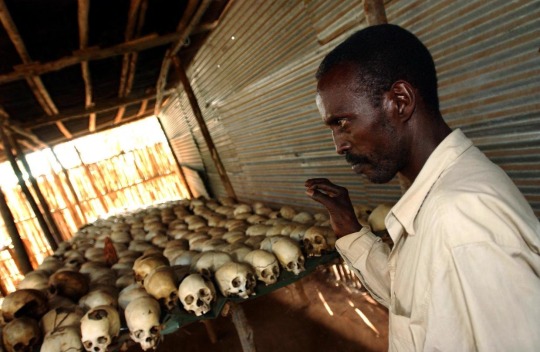
Pacifique Rutaganda, the guide of the Ntarama Genocide memorial where 5000 people were killed in the 94 Genocide, talks to an AFP reporter 26 May 2003. © Marco Longari/AFP
Thirty years have passed since the Rwanda genocide. Following a significant population decrease – from seven million people in the late 1980s to five million by the end of 1994 – by now, the population of Rwanda has surged to 14 million. Rwanda remains the most populous country in continental Africa, and is also one of the leaders in terms of economic growth. In terms of population density in Africa, Rwanda is surpassed only by Mauritius – which could well be the most prosperous country on the African continent.
Economic Growth Today
The supposed connection between population density, falling living standards, and food crises in Africa was merely an unsuccessful hypothesis. The expected growth of Africa’s population to three billion people in the coming decades is likely to solve the problem of hunger through market growth, infrastructure development, and agricultural production.
In Rwanda itself, economic growth is evident. In the past 30 years, crop production has increased more than sixfold, both due to increased agricultural productivity and because of new land included in agricultural turnover.
The length of paved roads has doubled to 1,200 km, exports increased from $100 million to $3 billion, and the capacity of power plants has increased sevenfold to 230 MWh. The growth of the Rwandan economy isn’t just a result of the balanced development of infrastructure, but is also due to the consistent development of the tertiary sector of the economy. In 2022, Rwanda’s tourism revenues amounted to $445 million. An important contribution in this regard is made by RwandAir, which offers 24 direct routes to 21 countries.
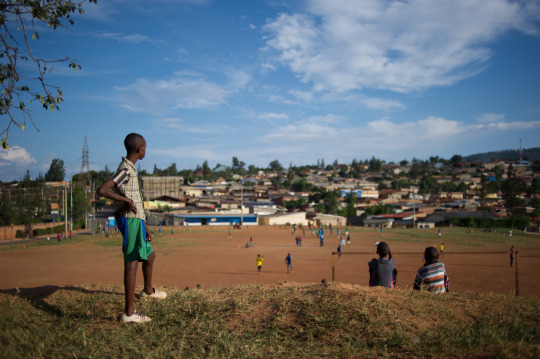
Rwandan youths watch a football game on March 16, 2014 at Gikondo suburb in the capital, Kigali. © Phil Moore/AFP
Why Did It Happen?
As for the causes of the genocide, we can now affirm that it was caused by external and situational factors. The electoral ‘democracy’imposed by France did not take into account the country’s traditions of governance and the class structure of Rwandan society.
The criminals who came to power united their supporters under the guise of protecting the interests of the ‘Hutus’, and incited people to violence, which was driven by induced class hatred. Meanwhile, external forces, including arms suppliers and smugglers, made money from the conflict. It was also convenient for the West as a means to justify its agenda and maintain its leadership position. Nevertheless, France was badly affected by the Rwanda genocide. In fact, the demise of Francafrique and the crisis in relations between Paris and Africa that has reached its apogee today, dates back to 1994.
What’s Next: Regional Hubs, Polarless Policy, External Impact
It is common practice for countries (and not just in Africa) to move their capital cities inland, away from coastal areas. In Africa, the most successful example of this is Abuja in Nigeria, and Dodoma in Tanzania may be next. This step signifies a change in the country’s system of development, as it moves away from a semi-colonial structure – when the country’s life depends on trade with the outside world through one or two large ports – to self-sufficiency ensured by internal growth resources and intraregional cooperation.
The next step is the formation of regional integration hubs in the inland parts of Africa, which would serve the needs of the entire continent. Such hubs are very important for the continent’s future. Rwanda is already turning into a remote communications and logistics center for Africa, and a distribution hub for the entire African Great Lakes region.
The construction of a new airport in southern Rwanda in partnership with Qatar Airways, and the construction of the Kigali dry port with DP World – a Dubai-based infrastructure and logistics company – can turn Kigali into an important transport hub and business center. However, the volume of foreign-exchange earnings is still insufficient to ensure the country’s continuous and rapid growth, and this remains a problem.
However, the part of the economy related to the processing and re-export of minerals from the DRC, as well as the supply of necessary goods (e.g. energy, food, medicines, and equipment) to the Eastern Congo market may ensure long-term growth, considering the growing global demand for Congolese metals. In order for this to happen, Rwanda needs to preserve a porous border with the DRC and expand its economic and political influence in North and South Kivu provinces. Peace – or at least keeping the conflicts in this part of Africa under control – is also an important prerequisite.
Among other things, Rwanda remains a positive example of a multi-vector and polarless policy characteristic of Africa. Qatar and the UAE are now forced to compete for Kigali’s attention. Even France, despite the painful history of relations between the two countries, remains among Kigali’s partners. Rwanda also maintains smooth, friendly political relations with the US, China, and Russia.
If it were not for external pressure on the DRC and Western attempts to limit China’s influence in Africa, the neighboring countries would certainly come to an agreement. Objectively, the DRC is interested in economic growth and development in its eastern regions, which would be impossible without Rwanda’s involvement. However, in recent years the conflict between Kinshasa and Kigali has escalated, acquiring sinister features which bring to mind the situation 30 years ago.
Statements by Western governments, which take an increasingly pro-Congolese stance, make the authorities in Rwanda nervous and contribute to the escalation. Nevertheless, for both Kinshasa and Kigali, it is more profitable to keep Goma (a city in the eastern region of the Congo) as a trading hub and logistics center, rather than turn it into a site of bloody battles. The tragic story of the Rwandan genocide demonstrates that the less external forces meddle in the region’s affairs, the greater its chance of living in peace and focus on development.
In July 2024, Rwanda will hold presidential elections. If the current president, Paul Kagame, is to be re-elected for another seven-year term, he will have to once again prove the effectiveness of the country’s post-1994 management model.
— By Andrey Maslov and Angelina Pshenichnikova, Center for African Studies at the Higher School of Economics, Moscow. The authors thank Daniil Makukhin and Vsevolod Sviridov from HSE for their help in preparing the article
#Africa#Feature#War Criminal 🇪🇺#Moder Genocide#The Rwandan Genocide#African Solutions | African Problems#War Criminal France 🇫🇷#Tutsis’ and ‘Hutus’#Genocide | Population | Manipulation#Economic Growth
0 notes
Text
I think I actually want to do monthly updates of my year's goals to see how I'm doing and where I can do more. They were pretty reasonable goals for me & shaking myself out of my more lethargic tendencies & I'd like to see myself progress a bit.
I have been doing yoga 2x a week, but not always a studio class due to winter storm/weird work scheduling. I'm very close to committing to a membership (it's saving a ton of money, IF I really do go 2x a week). Yoga has kind of been the only form of exercise that I really, really enjoy, and doing it even kind of consistently has got me itching to be a bit more active. I'd like to find something else to do, but I don't want to pay for another ind of class or gym membership so I'm kind of unsure...
Still catching up w/ knitting projects.
I made a few purchases after filling out my taxes but in all honesty not particularly frivolous? I got some books I've been meaning to read & some clothes I've been wearing a lot. I finally got waterproofing spray for my boots!!
Not going to keep fretting about going back to school (as much as I can) because I am good with the general idea and I'll just waste time trying to make plans for something I can't actually plan until I get to the point of doing it. Freaking out about trying to figure out financing. I really love my job but I'm worried I should find a full time position somewhere so I can actually be making money to really save!! Maybe I can actually figure out how to tutor ESL online and I can fill in the gaps with something I'd really like to do??
Technically this month I did read a few non-fiction books but they're not exactly what I meant when I said that! But the next few books on my non-fiction list are: The Ballad of Abu Ghraib by Errol Morris & Philip Gourevitch (maybe the latter's book on the Rwandan Genocide as well), The Dark Side by Jane Meyer, The Lion, the Fox, and the Eagle by Carol Off, and Shake Hands with the Devil by Romeo Dallaire. All books I've been meaning to read for a while/have read bits of. If I can actually read these in the next few months I definitely have some other stuff to read next.
Figured out how to keep moving forward w/ Portuguese.
1 note
·
View note
Text
Foreign
I remember at King’s College London speaking to an Iranian man. He was a member of the IT team and graciously worked on my laptop during my contract. I took him as a father with my uncle being miles away. He worked there for 30 years built a life in London - family and all. I asked if he felt London was his home and he said when he goes to Iran he doesn’t feel quite at home, but neither does he feel fully at home in London.
You’re removed from your native country for so long - you don’t really relate to it anymore
And then you’re in a new place that you become established in but you’re reminded you’re not the ‘purest’ bred of that nationality so you’re again wrestling with being on the fringe, not fully belonging
A place of tension, unease, discomfort and contradictions
The borders have opened again and I have my reservations. Knowing I can’t feel fully comfortable going to my childhood home, feeling so rejected, feeling like I’d get emotional and triggered. i should be happy but i feel numb. I will go to see my uncle. To see my family. To collect my stuff. Pastors. Friends and stuff.
It’s humbling being in Canada and being secure in my citizenship although some conservatives would say I’m not Canadian-Canadian
I’m not your kid-kid
- that’s the old stock. I argue that’s Indigenous people but anyways...
Coming to the London my VISA status reminds me although I’m well spoken and educated I’m still considered an outsider, unable to access the full benefits of being a citizen
I felt like a foreigner in my childhood home at home at times, always on the fringe from day one whispers were said not to talk to me
barred from the ‘good food’, kitchen, etc.
Romeo Dallaire , former major-general of UNAMIR, the United Nations Assistance Mission for Rwanda, helplessly watched countless die in the 1994 Rwandan Genocide, and later dealt with post traumatic stress disorder and alcoholism as result of the trauma. Romeo reflecting on the events of genocide wrote: Are all humans human? Or are some more human than others?
The way I retaliated was being manipulative, jealous, insecure
When M wrote a tribute to her mum, I felt a sense of hollowness not being able to connect to such maternal feelings
I try to be cordial, but I’m angry, livid
A freedom fighter
People say I give awkward hugs
My uncle hugged me a lot
But like the Iranian although I was home there was tension, a wedge that could be felt
Feeling unwanted, a burden
I could never really be at ease really
I and anyone else who weren’t conceived by Lilibet weren’t wanted
This feeling of rejection was embedded in my psyche
To my disposition
i hated myself
I put my head down as I walked the streets
Growing up I found refuge in other outsiders whose interests were: alternative rock, anime, gaming, dark comedy, cursing, fighting
As a Christian my ultimate home is heaven so I know that tension won’t end here
So I look upwards
Where I can finally feel at home and safe
0 notes
Text
Day One Hundred Fifty-Two
Today was a whirlwind because I had to drive to Boston as soon as I finished teaching (am catching a flight out of Logan tomorrow: taking my personal days for some family stuff), so I rushed out of the house with all my bags, realized I forgot my sneakers, rushed back, actually got to work and made sure my sub plans were in order.
And then I taught my classes!
In World, we finished watching Shake Hands With the Devil, then discussed the film and the actual events it portrays. I had an extremely sophisticated conversation with my Block 3 students about national interest, intervention in conflicts, what it means to fail to uphold a treaty, how difficult it is to hold a powerful country accountable.... It was impressive. Those students also gave me groans and grudging applause when I set up the next lesson- about the war in the DR Congo and Rwanda’s role in it- and ended with a “You’ll find out more next class” right at the bell. As I won’t be there next class, I’m hoping I’ve peaked their curiosity enough to keep them independently motivated.
In APGOV, we continued our study of the NH state government. I lectured about the state government’s structure, went into detail about the various things that make our government unique and the rationale for them, identified things that exist in other state governments but not ours... They also read the US News Ranking for NH, and we discussed the policy decisions that impacted the ranking, positively or negatively. It was a solid class.
#teaching#teachblr#edublr#educhums#education#teacher#high school#social studies#shake hands with the devil#romeo dallaire#my timing is impeccable#day one hundred fifty two
2 notes
·
View notes
Photo
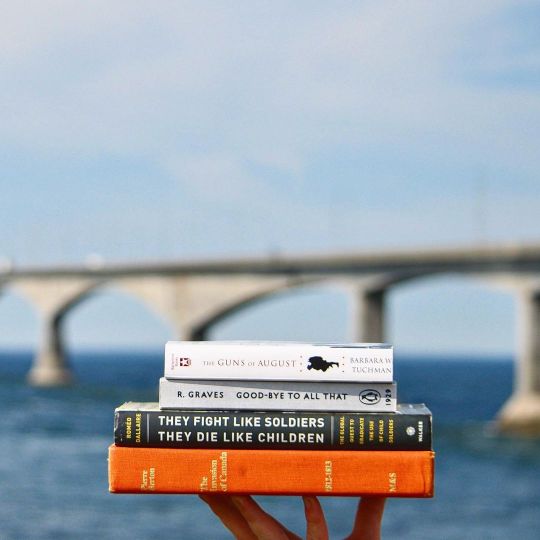
A few days late, but after an awesome trip home to PEI and a week spent trying not to melt like popsicle here’s July’s read books! 1. “The Guns of August” by Barbara Tuchman (1962) 2. “Goodbye to All That” by Robert Graves (1929) 3. “They Fight Like Soldiers, They Die Like Children” by Romeo Dallaire (2010) 4. “The Invasion of Canada” by Pierre Breton (1980) Hope everyone is staying safe and cool in this extreme heat! Drink water, stay hydrated, chill in the shade and don’t work too hard! 🫠 🥵 #bookstagram #julyreads #summerreads #readingchallenge2022 #PEI #confederationbridge #thegunsofaugust #barbaratuchman #goodbyetoallthat #robertgraves #theyfightlikesoldierstheydielikechildren #romeodallaire #theinvasionofcanada #pierreberton (at Borden-Carleton, Prince Edward Island) https://www.instagram.com/p/Cg-WT8xJ0UCc99du0EGCqxESGi91AV910WjMqA0/?igshid=NGJjMDIxMWI=
#bookstagram#julyreads#summerreads#readingchallenge2022#pei#confederationbridge#thegunsofaugust#barbaratuchman#goodbyetoallthat#robertgraves#theyfightlikesoldierstheydielikechildren#romeodallaire#theinvasionofcanada#pierreberton
0 notes
Link
“In the months leading up to the genocide, Dallaire repeatedly warned the UN Security Council something catastrophic was brewing. But he said world leaders were too concerned with preventing peacekeeper casualties to let him act.
Dallaire returned to Canada devastated and angry, haunted by his inability to prevent the genocide or convince the international community to do more to stop it.
"I've been under 20 years, nearly, of therapy. They have tried, by every means possible, to take away my guilt," Dallaire said.
"Command is sort of like being a woman who's pregnant. You can't be pregnant during the week, and on weekends have a break … There is no, 'I did my best and I'm sorry.' You are held accountable for your command. There is nothing that can take that away, and should never be anything.’"
Many of my friends in countries other than Canada (and sadly, many in Canada), may only know this lion of a man through the miserable travesty of a characterization by Nick Nolte in Hotel Rwanda. The reality of him, his fight for mental health, and the crusade he has led to stop the recruitment of, save, and rehabilitate child soldiers around the world, framed through the guilt and ptsd of his UN command in Rwanda throughout one of the bloodiest and horrifying moments in history, is remarkable.
My respect and compassion for Roméo Dallaire is immeasurable.
Shake Hands With The Devil: The Failure of Humanity in Rwanda
They Fight Like Soldiers, They Die Like Children: The Global Quest to Eradicate the Use of Child Soldiers
#romeo dallaire#I went to hear him speak#I have rarely been so moved#his talk was followed by#Ishmael Beah#who broke my heart and inspired my spirit#a former child soldier who wrote#A Long Way Gone: A Memoir of a Boy Soldier
16 notes
·
View notes
Photo

Shake Hands with the Devil by Romeo Dallaire
522 pages
It shouldn't surprise anyone that this is a heavy read, but it's an important one. Dallaire is open and honest about the Rwandan mission that effectively ended modern peacekeeping. The United Nations was unequipped to deal with the genocide and disaster in Rwanda, and there are valuable lessons that can be learned from it. Rwanda in the 90s was a complex mix of politics and ethnicity that needed to be properly understood to manage the conflict and the refugees, and if you want a clear understanding of the circumstances that lead to the genocide and its mismanagement this is an excellent book.
It's a very insightful view into modern politics, but it's not one I can see myself reading again any time soon. Like I said, it's not an easy book to read, and Dallaire doesn't shy away from the horror or the PTSD. I do recommend reading it, but this is the kind of book you need to be ready for.
#romeo dallaire#shake hands with the devil#book#books#book review#bookstagram#book worm#rwanda#rwandan genocide#genocide#war#PTSD#hutu#tutsi#warfare#United Nations#UNHCR#combat#peace keeping#peace keeper
4 notes
·
View notes
Photo
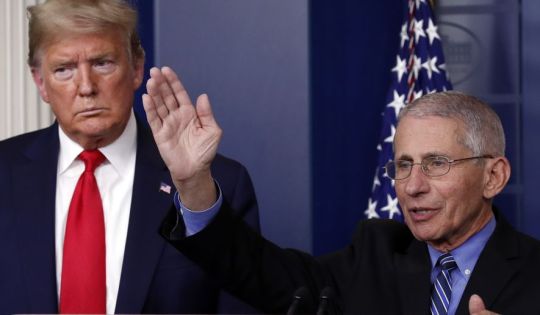
Moral Courage & Abusers of Power/an excerpt from my upcoming memoir “Killing Justice: The Taste of Knives”
Once upon a time I wanted to be ambassador to Israel and help bring about world peace. I passed the Foreign Service Written Exam three times, and, after passing it the second time, I managed to pass the Oral Exam in July of 2001. Two months later, 911 changed my adopted country forever. Ninety five percent of the State Department’s budget was transferred to the Defense Department, as it was believed we no longer needed to talk to our enemies. We could simply kill them all. I then sat on a waiting list for two years as a result.I’ve often wondered, in the eighteen years since then, whether if had gotten in, I would have had the moral courage to stand up to the bureaucratic abusers of power in the State Department, and actually been able to do anything to help move us any closer to peace in the Middle East, and the world.I was reminded of that as I was watching the cringe-worthy latest installment of the Trump Show earlier today. The abuser-in-chief was desperately trying to convince us that the economy simply must be resurrected by Easter Sunday OR ELSE!I watched closely the non-verbals of the clearly conflicted, extremely morally courageous Dr. Fauci, as he attempted to save potentially millions of lives from the abuser-in-chief’s childish insistence on an Easter Sunday economic resurrection by his own equally desperate appeal for FLEXIBILITY!I hope all fifty governors were watching his non-verbals just as closely. I hope to God they will heed Dr. Fauci’s morally courageous example, and stand up to the abuser-in-chief as well. We’ve already seen how the U.K.’S abortive attempt to “get back to work” way too soon led to a spike in infections, which forced them to reinstate the lockdown that had been in place before. WE NEED the HUMILITY to heed the examples set by South Korea and Germany as to how best to combat Coronavirus, RATHER THAN the HUBRIS to think that what happened in the United Kingdom won’t happen here.Perhaps the closest parallel to Dr. Fauci’s present-day example of moral courage is Lieutenant-General The Honourable Roméo Antonius Dallaire, OC, CMM, GOQ, MSC, CD, who is a Canadian humanitarian, author, statesman and retired senator and general. I heard Romeo Dallaire give a talk about moral courage at USC a few years back. He talked about how he led the UN Peacekeeping Mission in Rwanda during the Genocide in 1994. He was ordered to pull the Mission out. As a career soldier, he knew that if he refused to do so, he would be deliberately disobeying a direct order. Yet he knew that the Mission needed to remain in Rwanda in order to save whatever lives they possibly could. It was TOO LATE TO CONTAIN the genocide, but because of his morally courageous decision to stay, THEY WERE AT LEAST ABLE TO MITIGATE some of its horrors, by preventing thousands more Rwandans from being slaughtered.Some twenty five years later, Dr. Fauci now has the opportunity to be a morally courageous hero by following the example set by Romeo Dallaire. While it is clearly TOO LATE TO CONTAIN Trump’s seemingly bottomless appetite for abusing his power to either win re-election by claiming credit for an Easter Sunday economic resurrection, or, should the infections spike as a result, to declare martial law and declare himself dictator-for-life, I hope and pray that Dr. Fauci is AT LEAST ABLE TO MITIGATE some of the damage of Trump’s abuses of power, & by doing so, as with Romeo Dallaire, save at least thousands, and perhaps even millions, of lives from being unnecessarily sacrificed on the altar of the ALMIGHTY ECONOMY.
image: President Donald Trump listens as Dr. Anthony Fauci, director of the National Institute of Allergy and Infectious Diseases, speaks about the coronavirus in the James Brady Briefing Room, Tuesday, March 24, 2020, in Washington. (AP Photo/Alex Brandon)
1 note
·
View note
Quote
There was a big harouche about some person who was being mistreated by our judicial system, and people were up in arms against the Canadian judicial system. One person was being abused, his human rights.
On the same newscast there were pictures of thousands being slaughtered, of tens of thousands walking with nothing, of kids dying of thirst. My soldiers wouldn’t eat or drink any more because they couldn’t. There were so many people dying around them of thirst and no food. And the people back home on one side of their brain are up at arms about the Canadian who is being mistreated and on the other side of the brain see that and change the station.
Roméo Dallaire, interview at the United States Holocaust Memorial Museum, 2002.
2 notes
·
View notes
Text

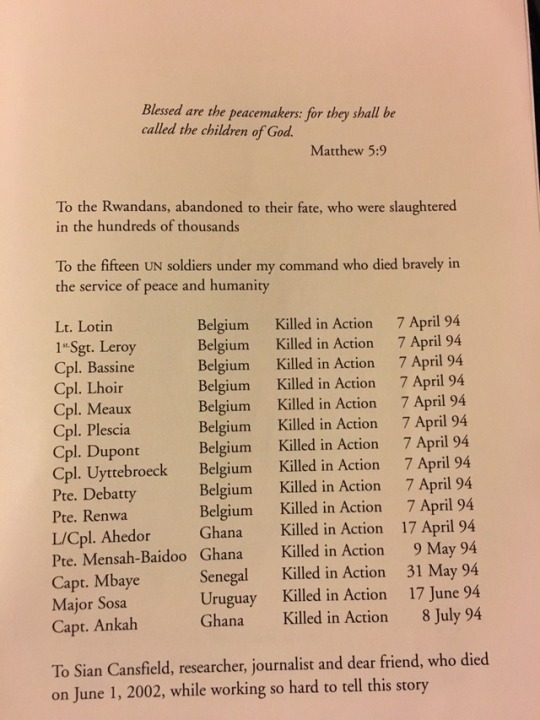
Words can’t describe how I’m happy, sad and heartbroken when reading this book. Thank you so much Mr. Dallaire ❤️
6 notes
·
View notes
Photo
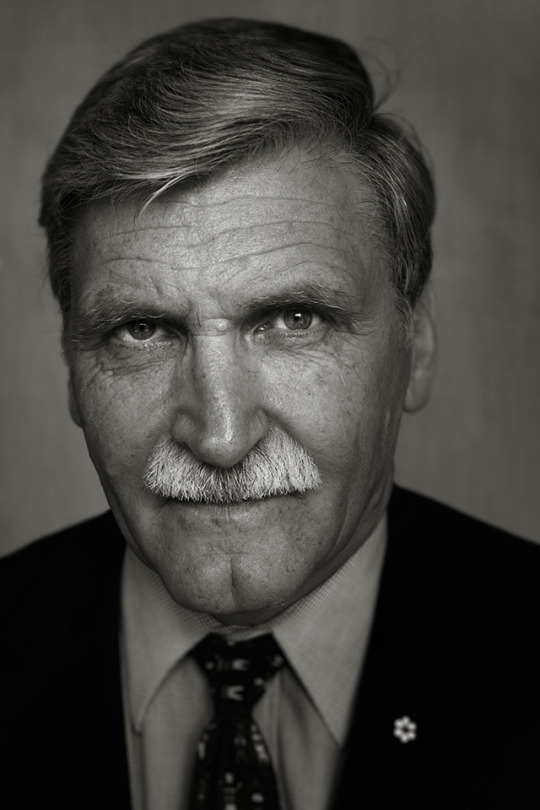
It was obvious that Dallaire was left with crushing regret in the wake of his command, and seven years before I photographed him he had attempted suicide with alcohol and an overdose of anti-depressant medication. I did my shoot with him and Dupuis in the courtyard restaurant of the Intercontinental on Bloor, and hoped that my shooting style - get up close, focus on the eyes, linger long enough within the subject's personal space - would capture some of the discipline and intensity that Dallaire projected.
More here.
#romeo dallaire#general romeo dallaire#portrait#shake hands with the devil#military#rwanda#portrait photography#black and white portrait#tiff#canonphotography
2 notes
·
View notes